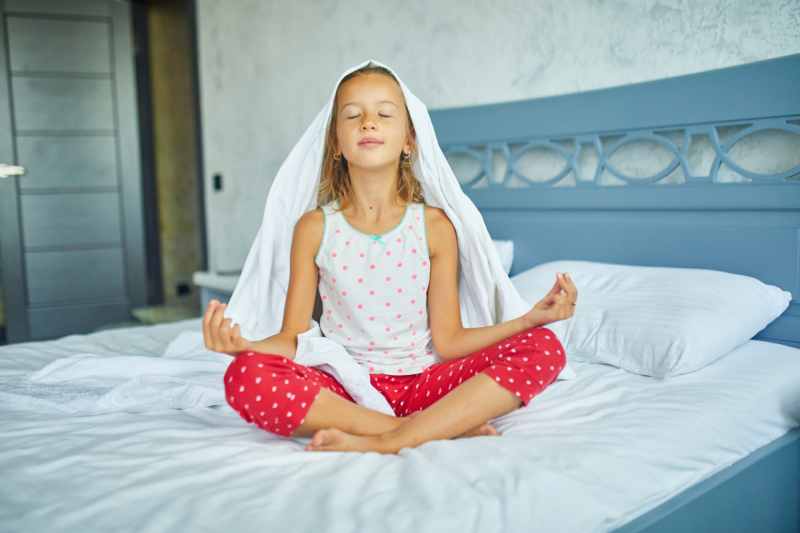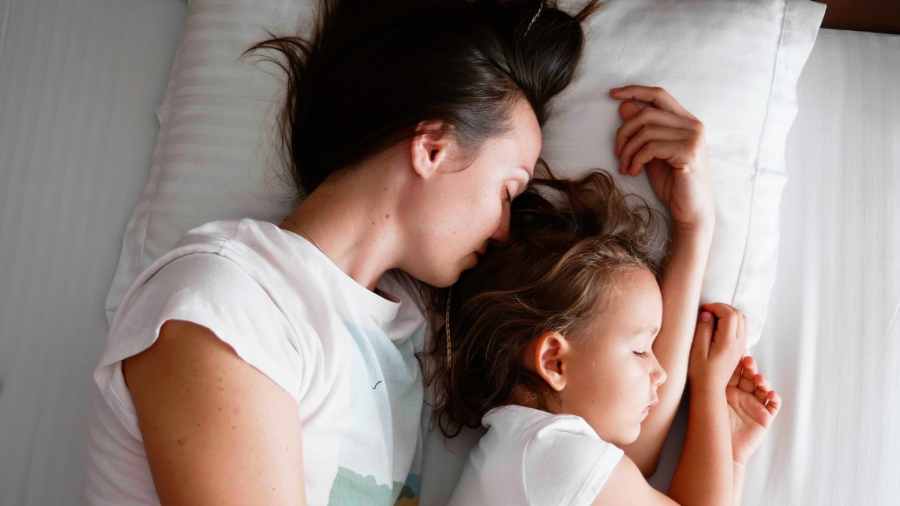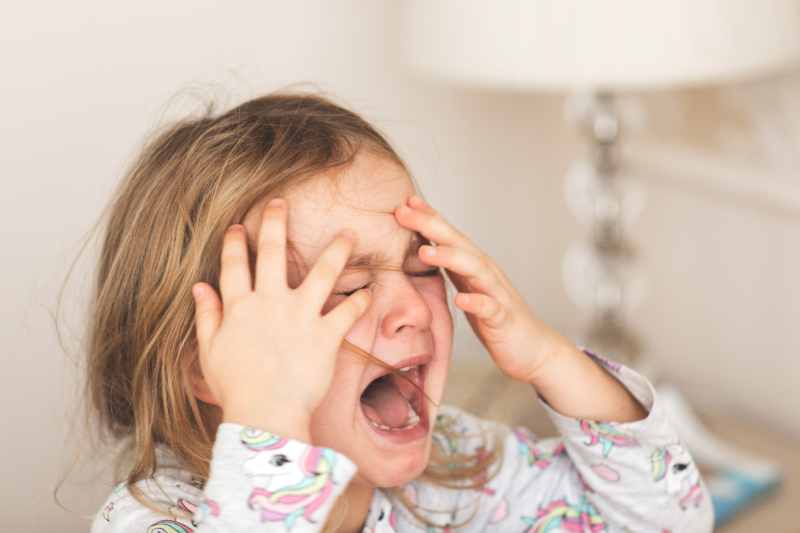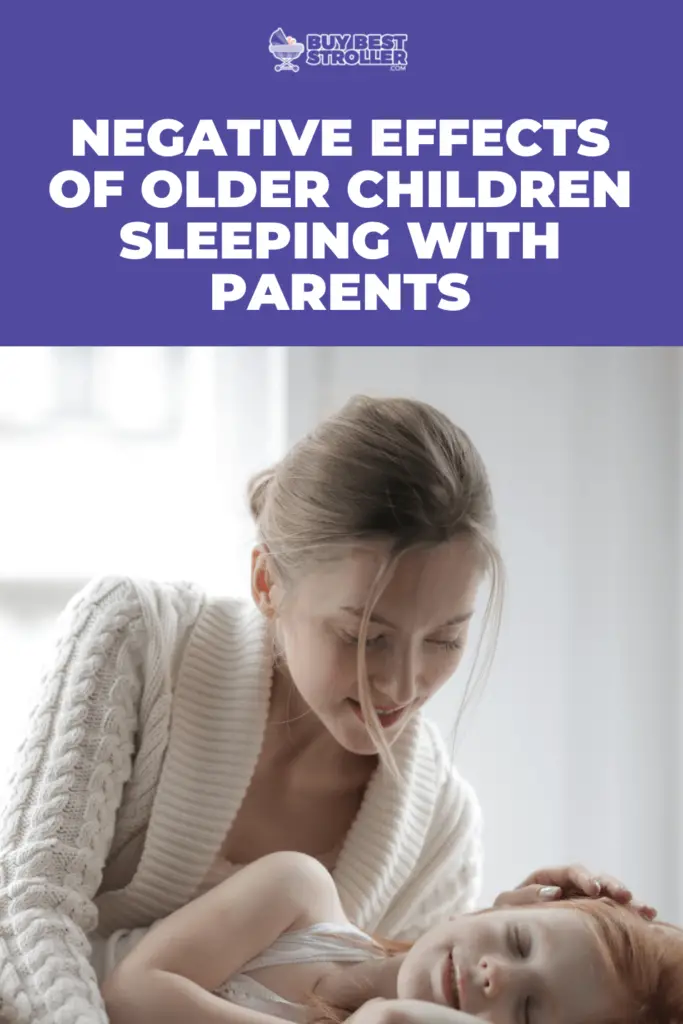There are some positive as well as some negative effects of older children sleeping with parents, the negative impacts may include discomfort in parent’s relationship, disrupting sleep patterns for everyone including the children, and impairing the ability of the children to become independent.
While co-sleeping has a few benefits, it will usually only worsen problems such as childhood anxiety, sleep difficulties, and family transitions.
But It is very normal for parents to let their children sleep in their beds. In some cases, however, allowing your child to sleep in your bed can become a problematic and chronic co-sleeping arrangement.
Older children sleeping with parents can also affect a child’s social development because a child cannot interact with peers normally. In this case, the child may be unable to experience a sleepover, participate in overnight school trips, or go to a sleepaway camp.
Co-sleeping usually worsens marital problems and makes it difficult for children to adjust to changes in the family structure.
According to Dr. Lynne Schneeberg, P.Y.D., director of the behavioral sleep program at Connecticut Children’s Medical Center, it is more necessary to teach children how to become independent sleepers than to learn the benefits of sharing a bed.

Dr. Schneeberg says that sharing a bed with a family eventually becomes problematic for a variety of reasons.
7 Negative effects of Older Children Sleeping with Parents
1. Independence
You should allow your children to feel dependent on you when they’re in their early years, but once they are able to take care of themselves, it’s time to set them free.
It doesn’t mean they should be thrown on a subway or start walking home alone – they’re still young. Although learning how to cope with darkness and potential terrors should be beneficial to both parents and children.

2. Lack of Self-Reliance
When children have some stuff, it is always best to leave them alone because they can find a way to escape without your help. As a matter of fact, they can survive without your support as well.
Separate sleeping can be an excellent way of teaching children self-reliance.
When they are young, it would be better if they learned to rely on their own strengths.
3. Children grow anxious
Children with parents always around may develop anxious behaviors if not taken care of. If children sleep with their parents, they might get used to being patted, and rubbed on the back during sleep. They may develop anxiety when they don’t get what they expect.
Such a situation could make them unable to sleep in the absence of their parents.

4. Gender and Sexual Identity
For many families with children, evenings are their only opportunity to spend time together alone. While you share a bed with your kids, they divide you physically from your partner. It is difficult to maintain intimacy when co-sleeping.
5. Poor performance in school
The grades of your child may begin to slip if they are too nervous or lacking in self-confidence. When children have these habits for too long, they may feel uncomfortable with the ability to do well in school, which can result from co-sleeping for too long. Eventually, your child may stop trying because they believe they cannot succeed.
6. Insufficient Sleep For Everyone
Co-sleeping can also disrupt your sleep and prevent you from getting the 7 to 8 hours of sleep you need each night to feel refreshed in the morning. (They are essential as busy parents)
It is common for kids to be noisy, to take up space on the bed, and to be needy when they are scared. Bedtime can be difficult for parents when such distractions exist.
These were some of the Negative effects of Older Children Sleeping with Parents, Let’s take a look at some other questions which may arise in your mind while searching for answers to your main concern i.e Negative effects of Older Children Sleeping with Parents.
At What Age Should A Child Stop Sleeping With Their Parents?
According to the American Academy of Pediatrics, it is recommended that infants sleep with their parents for the first six months of life, ideally for an entire year, to lower the risk of Sudden Infant Death Syndrome (SIDS) by up to 50%.
Is It Normal To Co-sleep With A 10 Year Old?
It isn’t normal to share a bed with a 10-year-old. Children are co-sleeping with their parents in near-epidemic proportions today, according to recent studies. 45 percent of moms share their sleeping space with their 8- to 12-year-olds from time to time, according to Parenting’s MomConnection, and 13 percent allow it every night.
Because of this, children are less self-reliant today. In general, preteen children are not yet taught how to be alone at bedtime and haven’t been forced to learn. Most parents assume that when kids grow up, they will outgrow co-sleeping, but many do not.
Is It Normal For A 5 Year Old To Sleep With Parents?
A 5-year-old child may sleep with his parents if they wish. Children of all ages sleep with their parents at least sometimes, including toddlers, preschoolers, and school-age children. The National Sleep Foundation (NSF) reports that 24 percent of parents sleep with their child in bed at least part of the night.
Is It Normal For A 6 Year Old To Sleep With Parents?
If your child is 5 years old, he or she may love cuddling up in bed with you and your partner, but by age 6, he or she may suddenly feel nervous, insecure, or strange. In this situation, make sure to respect your child’s feelings and wishes and begin transitioning from co-sleeping as soon as possible.
In some families, older children share a bed with their parents until they are 6 or 7 years old. According to experts, it is not a good idea – a child at almost seven should have a personal space of its own, and he or she should also honor their parents’ privacy.
Why Is My Child Afraid To Sleep Alone?
Bedtime fears can point to a larger anxiety problem that needs professional assistance, but in most cases, there does not. Almost every child is scared of sleeping alone sometimes.
Children who develop chronic anxiety in their sleep usually do so because Sleeping anxiously becomes a habit for most kids who develop chronic sleep patterns. There are many things that can contribute to anxiety, such as stress at school, arguments at home, failure worries, and scary movies.




